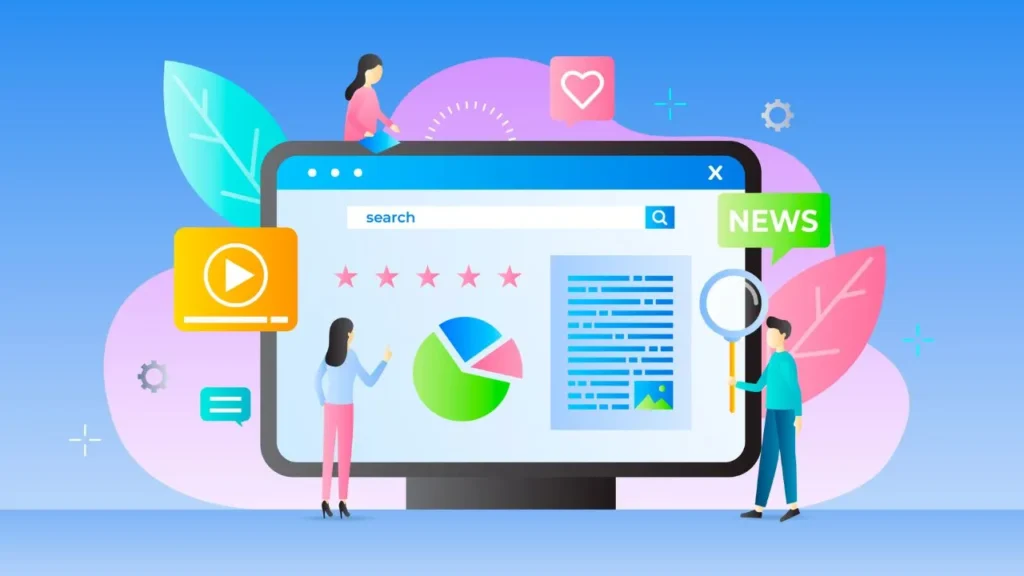The old and often time-consuming processes of managing B2B payments (paper checks, manual invoicing and spending long hours at the bank) are soon going to be outdated. Modern Enterprise Payment Solutions has automated working processes, improved security factors, and integration aspect which will fit well with other modernives of the business world. Such platforms do not only make payment faster, but also offer detailed reporting, fraud detection and support in multiple currencies that the global businesses need to survive in the competitive markets.
The choice of the appropriate B2B Payment Solutions may have a profound effect on the cash flow management of a company as well as its efficiency in operation and finally on bottom line. However, having a lot of options on the market, it is necessary to learn the features of the platforms, their advantages, and disadvantages to take informed choices. This ultimate resource offers the nine best Corporate Payment Solutions of 2026, their features, costs and optimal applications to assist firms determine which group will suit their needs based on their company demands.
What Are B2B Payments?
B2B payments, also known as business to business payments, are those payments that are made between two business organizations other than a business and consumer. These payments usually require great amounts of transactions, extended payment terms and invoices that are more complicated in nature than consumer transactions. Enterprise Payment Solutions are optimally geared to accommodate such peculiar needs, and they are equipped with capabilities such as purchase order management, invoice reconciliation, and flexibility of credit terms, which meet the corporate financial management processes.
How They Differ from B2C Transactions
The basic dissimilarities in the transactions involving B2B and B2C go beyond the participants. B2B payments means that payment policies are usually negotiated, purchase orders are placed in large quantities, there are frequent payment cycles within the organization, and the approval bands are various. The transaction volumes in B2B are also significantly larger with individual payments occasionally reaching millions of dollars. Also, B2B Payment Solutions should support a sophisticated taxation, a multi-tier authentication procedures and documentation, which the B2C transactions often do not require.
Traditional vs Digital B2B Payments
The conventional B2B payment systems used to be based on the paper-based methods (such as the physical checks, manual invoicing, physical visits to the bank) which meant that the processing times may take up to several weeks. Digital Commercial Payment Solutions have toiled this frontier and presented the availability of electronic payment platforms, automated reconciliation, real-time recording of all transactions, and incorporated accounting systems. Digital changes have led to a decline of transaction costs, which are reduced to up to 80 percent, a reduction of human errors, as well as availed a new level of transparency to businesses regarding its payment activities and cash flow condition.
Evolution of B2B Payment Solutions
- Paper Check Era – It is believed that paper-based systems ruled the B2B transaction over the decades, and had to be manually processed, physically signed, and took far too long to be cleared such as it could take over 7-10 business days.
- Introduction of Wire transfer: Banks came with wire transfer as a better alternative that could make payment in the same or next day but with much higher transaction cost and less details on the transaction.
- ACH Networks Development – The Automated Clearing House systems were developed to support the batch processing of electronic payments where the middle ground between the checks and wire transfers (1-3 day settlement) was more affordable.
- Digital Payment Platforms – Technological firms introduced specialized B2B Payment Solution services with APIs, Automated Invoicing, Multicurrency, and Real-time Payment Tracking which changed the nature of business transaction processes.
- Blockchain and Real-Time Payments – More recent developments are cryptocurrency solutions, real-time settlement, smart contract automation, and decentralized payment networks that will transform global B2B transactions in 2026.
Key Types of B2B Payment Methods
- ACH Transfers- ACH bank-to-bank transfers that are done via clearing house networks are cost-effective in processing large volumes of payments, with a settlement time of 1-3 days which is optimal in servicing recurring payments.
- Wire Transfers- Direct bank transfers that offer same-day or instant payment delivery, which is often utilized in transactions involving high value and time sensitivity despite its high cost of processing.
- Virtual Cards – Virtual card numbers are single use or limited use credit cards numbers created and used in specific transactions, which offers a higher degree of protection, better visibility of card usage and easier reconciliation of the card usage in B2B purchases.
- Digital Wallets -(Razorpay, Stripe, Payoneer) Payment platforms are cloud-based solutions and allow multiple payment methods to be stored, transfers can be made instantly, different currencies can be accepted, and it can seamlessly connect with the business accounting systems.
- Cross-Border Payments- Advanced services used when conducting transactions involving more than two countries, providing good foreign exchange rates, multi-currency accounts and meeting regulatory demands worldwide to ensure smooth business processes anywhere in the world.
Challenges in Traditional B2B Payments
- Efficiency Inefficiencies- of Manual Processing Paper-based invoicing and check processing involve much human involvement, which slows down payment, rising labor expenses, and improper entries of data that disrupts cash flow.
- Poor Payment Visibility– Under the traditional methods no good real time tracking is provided hence businesses find it hard to track the payments status, or predict the cash flow and incurring the required transactions.
- High Transaction Costs: The printing of physical checks, postages, bank processing fees, and the labor cost incurred in managing the traditional form of B 2 B transactions are all very high costs that add to the overall cost of the traditional transactions.
- Security Vulnerabilities- Paper checks and manual system can be affected with fraud, losses, unauthorised changes and data breach that can cause immense financially and reputation losses.
- Long Settlement Periods- Conventionally used methods take between 5-15 business days before a full cycle is complete and funds are readily available, which adversely affects the relationship with the suppliers and efficiency of working capital.
Benefits of Modern B2B Payment Solutions
- Digital B2B Payment Solutions- Accelerated Payment Processing: Supplier relationships can be improved and early payment discounts captured, and working capital managed optimally by all parties with Digital B2B Payment Solutions.
- Improved Security Controls-High-grade encryption, tokenization, multi fac authentication and time bomb defenses safeguard important financial records and greatly minimize chances of unauthorized financial dealings and cyber attacks.
- Automated Reconciliation – This part is an accounting system integration allowing automatic equalization of payments and invoices to avoid manual data entry and minimizing the errors and saving endless hours of financial operations and reporting.
- Cost Savings – Going paperless, postal mail and manual handling greatly reduces the cost of transactions and most Corporate Payment Solutions attract charged a fraction of the cost of traditional payment methods and provide better service.
- Global Payment Capabilities- The new platforms have the ability to handle various currencies, favorable exchange rates, international compliance, and international cross border transactions that allow business entities to go global without payment infrastructure obstacles.
Table: Top B2B Payment Solutions Comparison
| Name | Best For |
| Razorpay | Indian businesses and comprehensive payment infrastructure |
| Rapyd | Global fintech solutions and marketplace payments |
| Paddle | SaaS companies and subscription billing management |
| Stripe | Developer-friendly integrations and customization |
| Payoneer | Cross-border payments and international freelancer payments |
| BVNK | Cryptocurrency and blockchain-based B2B transactions |
| Bill.com | Accounts payable automation and invoice management |
| Airwallex | Multi-currency accounts and international payments |
| Adyen | Large enterprises requiring unified payment commerce |
We suggest you to check this blog also Best Payment Apps in India
Top 9 B2B Payment Solutions in 2026
1. Razorpay
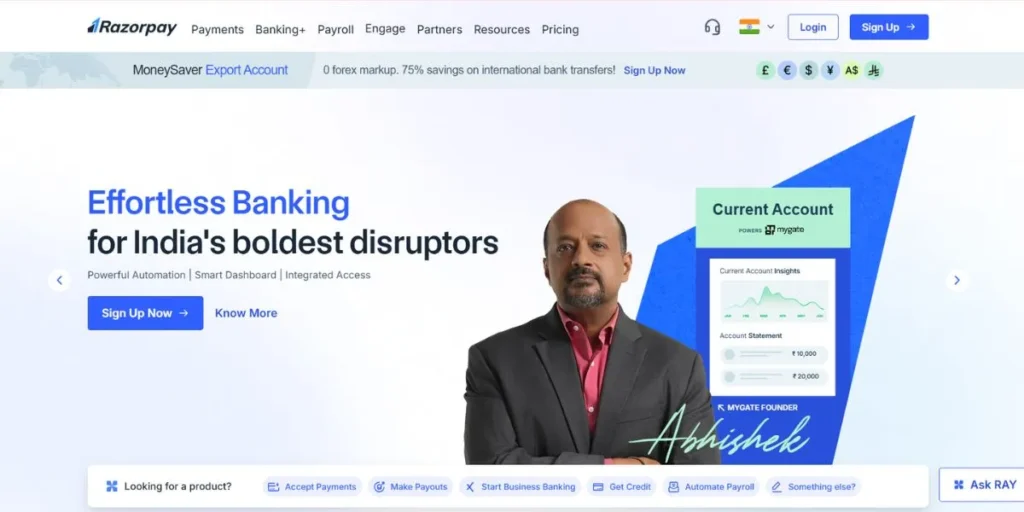
Razorpay is now one of the most successful B2B Payment Solutions in India, and a full payment gateway is available that serves businesses of any size. The platform is able to interface with all the key accounting software with relative ease and allow businesses to automate their entire payment processes to generate invoices all the way through to reconciliation. Razorpay accepts most types of payments such as UPI, cards, net banking, and international payments, which makes it universal in both local and global payments.
Pros
- Wide local payment systems.
- Accounting Software finding its home.
- Availability of competitive pricing scheme.
Cons
- Payment gateway based mainly in India.
- Little advanced features provided.
- Slows in response to customer support.
Pricing Transaction fees begin at 2% with no establishment costs range, enterprise pricing is also optional with large volume companies.
Website Link razorpay.com
2. Rapyd

Rapyd is one of the B2B Payment Solutions that has been distinguished as a global fintech-as-a-service platform that allows businesses to accept, hold, and provide finance in more than 100 countries. The service has an advantage of massive coverage of local payment methods supporting over 900 forms of payment across the globe such as mobile wallets, bank transfers, and cash-based payment. The infrastructure of Rapyd is designed to support multi-party transactions that are quite intricate and widespread in marketplace business models and platform business models, which is why it best suits companies with multiple buyers and sellers involved in transactions.
Pros
- Large global coverage of payment.
- Supports 900+ payment methods
- Efficient payment option within the market place.
Cons
- Complicated start-up operation.
- The transaction costs will be higher.
- Sharp learning curve in the first place.
Pricing Individual prices might be determined according to the volume of transactions, geographical reach and particular business needs.
Website Link http://rapyd.net
3. Paddle
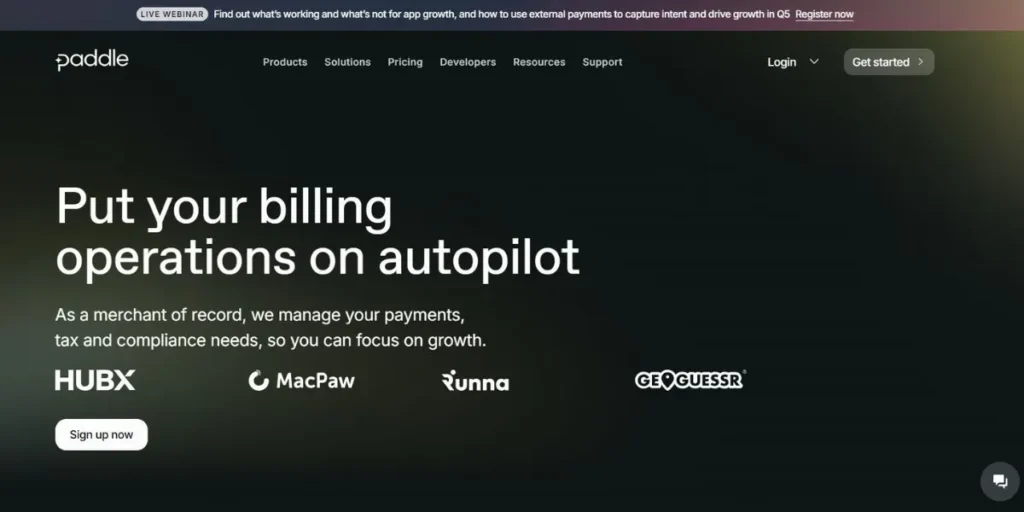
Paddle has revolutionized Corporate Payment Solutions specifically for software-as-a-service companies, offering a merchant of record model that simplifies global subscription management. Unlike traditional payment processors, Paddle assumes legal responsibility for transactions, handling tax compliance, regulatory requirements, and fraud liability across multiple jurisdictions. This unique approach eliminates the complexity of managing global sales tax, VAT, and GST compliance, allowing SaaS businesses to focus on product development and customer acquisition.
Pros
- Handles global tax compliance
- Merchant of record model
- Excellent SaaS-focused features
Cons
- Higher overall transaction fees
- Limited payment method options
- Less flexible for customization
Pricing 5% + $0.50 per transaction, includes all tax handling and compliance management.
Website Link http://paddle.com
4. Stripe
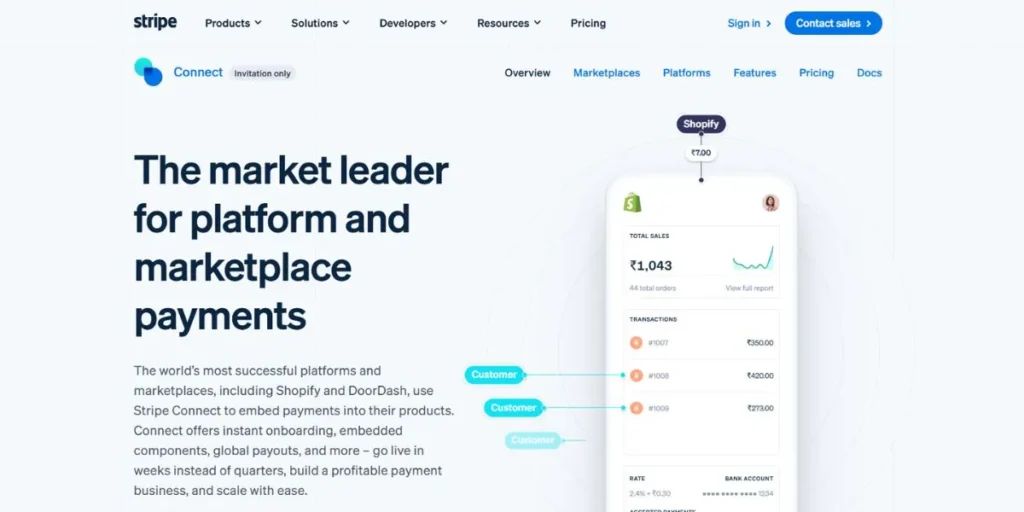
Stripe is among the most used B2B Payment Solutions in the world that is characterized by an unfriendly attitude towards developers and a high ability to customize it. The site also provides a full range of APIs that allow companies to create their own fully custom payment processes, subscription packages, and marketplace solutions that can be specifically crafted to meet company demands. The infrastructure at Stripe supports both basic one-time payments as well as multi-party transactions, including automatic recurring bills, usage-based pricing structures and advanced revenue recognition.
Pros
- Good developer documentation is present.
- Extremely adaptable payment streams.
- Currency support is very far-reaching.
Cons
- The technical integration skills are required.
- May end up being costly scaling.
- There is no urgency in the customer care departments.
Pricing 2.9% + $0.30 per transaction for standard processing, custom rates for high-volume enterprises.
Website Link stripe.com
5. Payoneer
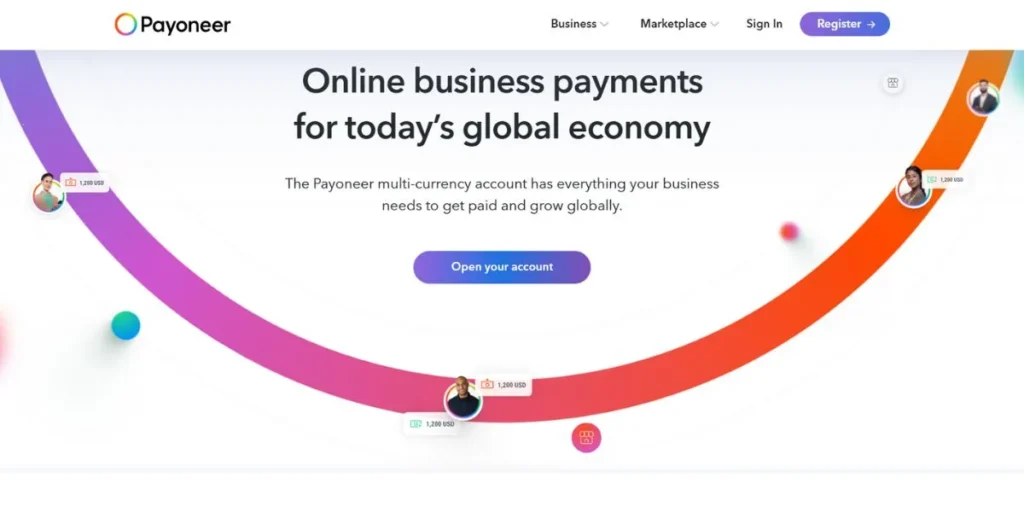
Payoneer has positioned its name as one of the leading B2B online transaction Solutions providers of cross-border payment and international money transfer. The platform is much superior in terms of matching companies with foreign partners, suppliers and freelancers; it has multi-currency account functionality, which enables businesses to accept and store money in various currencies at the same time. Payoneer has been found to be very affordable because of its competitive foreign exchange rates and low transfer rates, in contrast to business ventures that regularly transact international businesses.
Pros
- Superior international payments.
- International competitive exchange rates.
- Support of multi-currencies accounts offered.
Cons
- Restricted features in domestic payment.
- Time taken to verify accounts long.
- Inconsistency in customer service reported.
Pricing Receiving funds The act of transferring funds to and out of banks is normally free, currency exchange costs are levied.
Website Link http://payoneer.com
6. BVNK
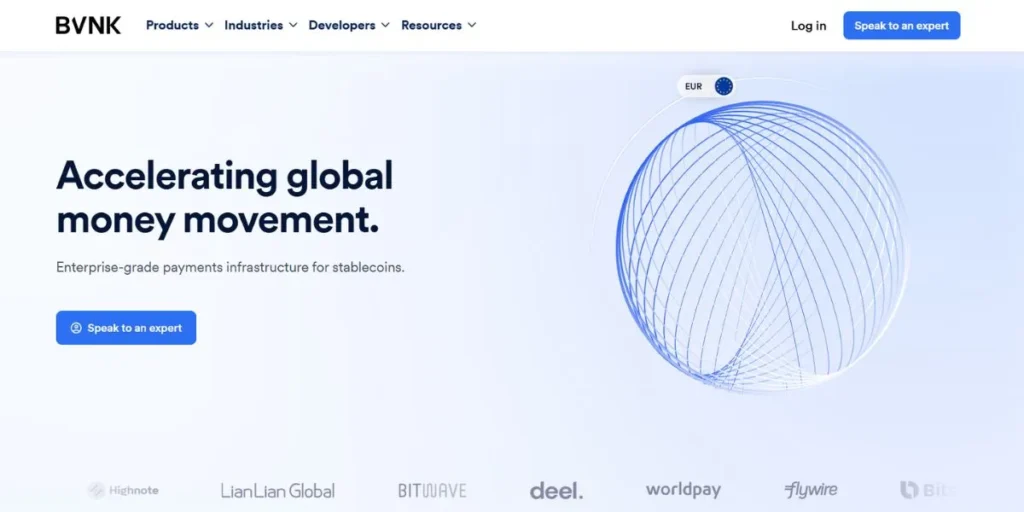
BVNK is the innovations of B2B Payment Solutions, and this deal aims at blockchain-based and cryptocurrency payment infrastructure to companies. It will allow businesses to accept, hold and settle fiat and other cryptocurrencies, creating the connection between the realm of traditional finance and online assets. BVNK infrastructure is aimed at businesses that need to take advantage of the speed, transparency and lower prices of using blockchain-based payments without violating regulatory requirements.
Pros
- Allows cryptocurrencies and a great deal of them.
- Reduced inter-country transaction charges.
- Capabilities of instant settlement.
Cons
- It has limited conventional payment channels.
- Bearing of crypto volatility risk.
- Uncertainty in regulations in regions.
Pricing Dynamic pricing depending on transaction amount and cryptocurrencies and is usually cheaper than usual solutions.
Website Link: http://bvnk.com
7. Bill.com
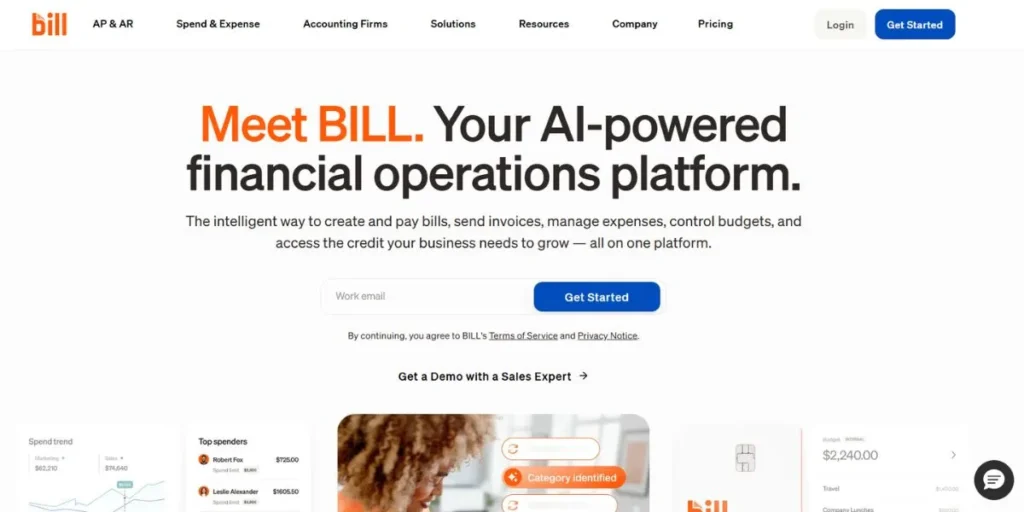
Bill.com has created the automation of accounts payable to become a household name and has dedicated B2B online transaction Solutions specifically meant to facilitate the automation of the invoice management and payment processing process. The platform automates the whole accounts payable operation comprising of invoice capture and approval routing to payment execution and reconciliation to eradicate manual data entry and paper operations. The intelligent automation capabilities delivered by Bill.com are OCR technology in extracting invoice data, customizable approval processes, which replicate company hierarchies and scheduled payments to optimize the cash flow.
Pros
- Good accounts payable automation.
- Good accounting softwared integrations.
- Alleviated approval workflow management.
Cons
- Mainly concentrating on the accounts payable.
- There are monthly subscription charges.
- Poor global cheque clearing facilities.
Pricing Plans start at $45/month with per-transaction fees ranging from $0.49 to $1.99 depending on payment method.
Website Link http://bill.com
8. Airwallex
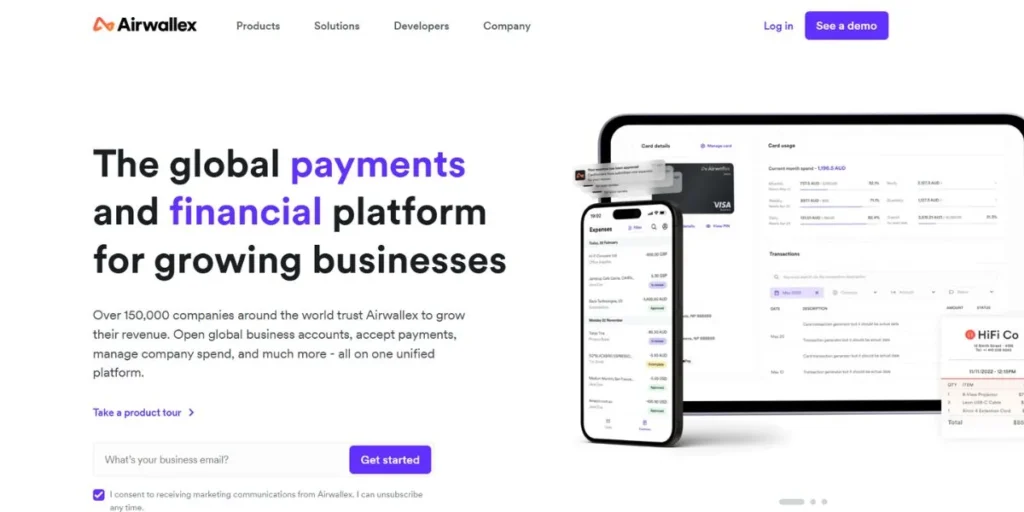
Airwallex has become one of the well known B2B Payment Solutions provider to businesses that need multi-currency features and global payment systems with advanced capabilities. The platform allows companies to store and supply funds in various currencies at the same time without having to aggregate several bank accounts across various countries. Airwallex has competitive foreign exchange rates, which is usually 90 percent less than the conventional bank, which saves a lot of money in businesses that utilize international transactions often.
Pros
- Multi currency accounts are exceptional.
- Very competitive exchange rates.
- Payment network is comprehensive across the world.
Cons
- Complex fee structure comprehension.
- Poor availability of customer care.
- Takes long to approve accounts.
Pricing There are no monthly account fees, competitive FX margins of 0.3 and different transaction fees depending on the method of payment and region.
Website Link: http://airwallex.com
9. Adyen
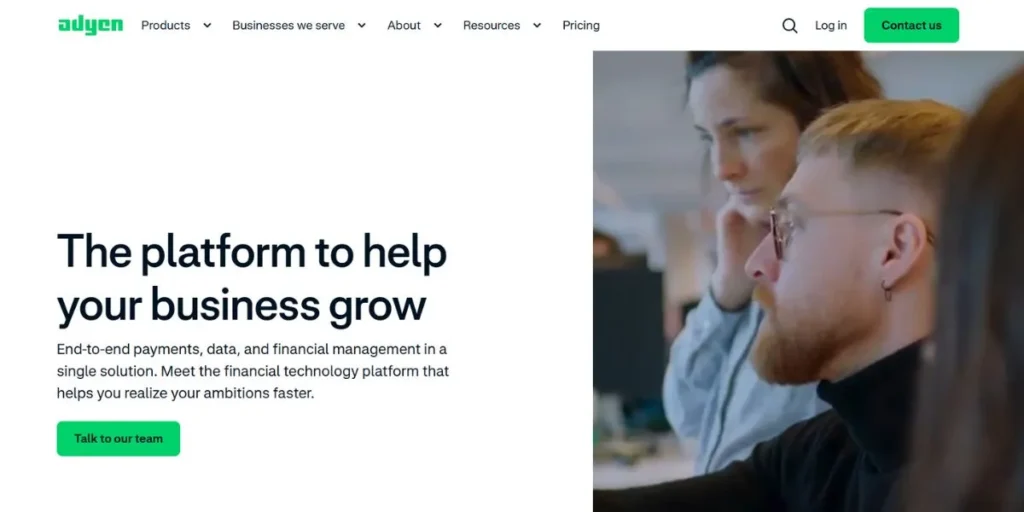
Adyen is a B2B digital payment Solutions of enterprise level; it is relied upon by some of the largest companies in the world such as Microsoft, Uber, and eBay. Its platform presents an integrated commerce service that has integrated payment processing, risk management, and financial services into one integration, making the system complex to handle with other technical businesses. The global infrastructure of Adyen serves more than 250 payment methods in 150+ transaction currencies to facilitate the globally international business operation by supporting local payment methods in every market.
Pros
- Infrastructure reliability of an enterprise scale.
- Localized trading platform strategy.
- Large global coverage of payment.
Cons
- It is planned to suit big businesses.
- Complicated implementation process demanded.
- Increased cost of transactions.
Pricing Custom Enterprise pricing of businesses, depending on transactional volume, area coverage and feature measurements.
Website Link http://adyen.com
We suggest you to check this blog also WooCommerce Payment Gateways
Industry-Wise Use Cases
- Manufacturing – Bulk Supplier Payments – Manufacturing industry is the area that B2B online transaction Solutions is applied to automate mass payments to suppliers of raw materials, manufacturers of parts, and logistics to guarantee strong performance on time and good conditions.
- SaaS – Subscription Billing – Dynamic B2B Payment Solutions of a business model in SaaS apply specialised B2B online transaction Solutions to handle integrated subscription billing, renewals, on-use pricing models and automatic upgrades of a range of global consumers.
- E-commerce- Vendor Settlement- E-commerce platforms that implement B2B Payments Solutions to perform automated split payments, vendor payouts, calculating commissions and reconciling between various sellers and the system.
- Logistics Global- Remittance International logistics and freight providers International logistics and freight providers actually apply these cross-border B2B Payment Solutions to facilitate multi-currency remittance, customs payment, partner commissions and international contractor payments in a variety of jurisdictions.
Security, Compliance & Regulations
- PCI DSS Compliance Obligatory- Any B2B Payments Solution should comply with Payment Card Industry Data Security Standards to provide the security of information about the cardholders by encrypting and securing the process.
- Multi-Factor Authentication Essential –Current systems use several authentication steps to verify the authenticity and discourage unauthorized access to the payment system.
- End to End Encryption Standard- transfers and storage of sensitive financial data should be encrypted so that information would not be intercepted and attempted to be compromised by unauthorized personnel.
- AML and KYC Protocols – The anti-money laundering and know-your-customer guidelines make certain that the payment platforms assure the identity of the business and also keep watch on any suspicious transactional activities.
- GDPR and Data Protection- GDPR and data protection requirements, platforms should ensure that there is compliance with the regulations of the country of data protection, and that the financial information of the customers is properly handled, stored, and deleted.
- Periodic Security Audits Mandatory- Ongoing vulnerability estimates and penetration tests form the basis of ensuring that the B2B Payment Solutions are on strong security postures against the ever-changing threats.
How to Choose the Right B2B Payment Solution
- Evaluate the Needs of your- Transactions Volume, to determine the requirements of your average transaction volume and high volume requirements, so that the site can properly manage your transaction needs.
- Take into Account Geographic Payment Requirments – Find out domestically and internationally what countries and currencies need to be supported, and verify that the solution has sufficient regional coverage.
- Test Integration Abilities Necessary, (s) Evaluate scalability with the existing accounting software, ERP systems and business management tools to achieve a successful workflow integration.
- Compare Total Cost Structure –Go past the transaction charges to inquire about the implementation costs, monthly subscriptions, foreign currency fees and other charges on features.
- Diversify Payment Methods- it is important to make sure that the platform accepts payment option types that are most desired by both customers and suppliers in target markets.
- Review Security and Compliance- See that the solution is sufficient to requirements mandated by the industry and has had the right security certifications.
- Analyze Customer Support Quality – Can you get customer support when needed, how fast and through what means?
- Scalability and Flexibility of the tests – The B2B Payment Solutions has to be able to expand as the business expands and changes.
Conclusion
The future of B2B digital payment solutions in 2026 presents unprecedented prospects to business in order to streamline its operations financially, minimize transaction expenses and venture into international markets without fear. The nine solutions mentioned in this general guide – Razorpay, Rapyd, Paddle, Stripe, Payoneer, BVNK, Bill.com, Airwallex, and Adyen – each has its advantages and disadvantages in serving particular business purposes, including domestic market experience or international cryptocurrency use.
The choice of using strong B2B online transaction Solutions is yielding returns in the form of creation of efficiency in operations, marketing of less errors and greater financial transparency which facilitates better strategic planning than before. Each small business that needs to automate the invoice payment, a SaaS company that changes subscriptions around the world, or a big enterprise that needs more complex multicurrency features, there is a fitting payment solution would be found in the list of options considered in this guide.
FAQs
B2B Payment Solutions: What they are and their significance.
B2B digital payment Solutions are dedicated applications that enable businesses to exchange finance and have such functions as automated invoicing, multi-currency, and accounting system integration.
What is the difference between payments made through modern B2B Payment Solutions and the traditional ones?
Scientifically, B2B Payments Solutions have much greater benefits than traditional solutions such as quicker processing time (usually same-day versus weeks), automatic reconciling of payments that eliminates manual entry of data, reduced transaction cost, superior security application (encryption and fraud detection), real-time payment processing, and seamless integration with business software.
What are some of the considerations business should make in selecting B2B Payment Services?
In the choice of the B2B payment processing Solutions, the businesses are advised to consider the needs of the business in terms of transaction volumes, geographical coverage, need in the support of multiple currencies, ability to interface with current systems, overall cost structure including latent fees, availability of different payment methods, security and compliance certifications, customer support quality, and scalability to meet future growth.
Are there B2B Payment Services that are secure in terms of execution of huge transactions?
Yes, B2B digital payment solutions, the reputable ones, establish enterprise level security, such as, end to end encryption, PCI DSS, and multi-factor authentication, and tokenization and sophisticated fraud detection algorithms. These sites are subject to periodic security audit and are in conformity with the international financial rules and regulations.
Is the B2B Payment Solutions beneficial to small businesses or to large business only?
B2B payment processing Solutions can prove extremely beneficial to small businesses, in many cases more significantly than to large businesses. A lot of platforms are available with tiered pricing plans, at the start with a cheaper one when they need a low volume of transactions. These solutions can bring disproportionate effects on the operations of small businesses due to the automation, time savings and minimized errors that the solutions can bring.




